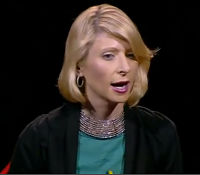Indexes - all Resources
Why we need more empathetic and compassionate leaders. (2016)
“Toxic leaders are creating toxic workplaces.” Ray Williams Psychology Today, 28 Aug 2016 "Leaders in business schools, organizations and politics are taught to lead with their heads and not with their hearts. Leaders are expected to be strategic, rational, tough, bottom-line business people who focus on results. Yet, recent research on successful leaders and the current turbulent economic and social times calls out for a diff...
Written by: Williams, Ray.
Read moreWhy we select toxic leaders. (2016)
Toxic individuals take advantage of the cues we use to identify high potential. David Rock, NeuroLeadership Institute executive director, NeuroLeadership Group CEO Psychology Today, 7 Nov 2016. Extracts: Humans… have significant cognitive resources devoted to identifying and then empowering potential leaders. However, incompetent or even malevolent individuals can take advantage of the cues we use to identif...
Written by: Rock, David.
Read more
Why your board needs a director like Donald Trump. (2015)
“Say what you will about ‘The Donald’, but lots of boards could use a director with his courage Adam J. Epstein, Third Creek Advisors VentureBeat.com August 2, 2015 2:00 pm Image Credit: Gage Skidmore/Flickr “Corporate boards fail for all kinds of reasons. Some boards lack the appropriate skillsets or experience around the table. Some boards are expertly composed but insufficiently engaged or committed. Others...
Written by: Epstein, Adam J.
Read moreWinner and loser effects in human competitions. Evidence from equally matched tennis players. (2017)
"...among men, the winner of a closely fought tie-break had an approximate 60% chance of winning the second set, the loser a 40% chance." Lionel Page, Queensland University of Technology Business School, Brisbane; John Coates, Dewline Research, UK. Evolution and Human Behavior 38 (2017) 530–535i In behaviour displaying the winner effect, an animal that has won a fight or a competition for territory is more likely to win...
Written by: Page, L. & Coates, J.
Read moreWith leader charisma it’s possible to have too much of a good thing. (2017)
“…both low-charisma and high-charisma leaders were seen as less effective than those in between”
Alex Fradera, Contributing Writer
The British Psychological Society Research Digest 14 June 2017
Photo: John Stillwell/WPA Pool/Getty Images
Drawing on research by Vergauwe, Wille, Hofmans, Kaiser, and De Fruyt outlined on this website here: Read more
“If you want to make the world a safer, kinder, happier place then simply substituting men with women wouldn’t cut it.”
Greg Hurst
The Times, 25 June 2016
Image: YLWA YNGVESSON/SCANPIX
Having women in positions of power does not make the world better as they “just do what men do”, according to the feminist Germaine Greer.
….She pointed to a target for one third of board members of FTSE 100 companies to be ... Written by: Greer, G. “Helping women leaders succeed doesn’t necessarily mean massive programs or numerical quotas. Sometimes, simple solutions work even better.”
Brian Kropp, Ph.D
From Talent Quarterly's special 'Female Talent' issue.
Talent Quarterly's preview:
“While most companies are talking about gender equality in leadership, these four are walking the talk. Their secrets may open doors for your female talent too.
“Lear... Written by: Daedalus admin "Margaret Thatcher showed that biology had not handicapped women from achieving dominance in the human tribe," writes Professor Ian Robertson, holder of the Chair in Psyhcology at Trinity College Dublin.
"(She also) taught us that women leaders are not immune to the distorting – and sometimes corrupting – effects of power that we have seen throughout the ages in men.
"Margaret Thatcher apparently was a great admirer of Tony Blair, and v... Written by: Roberston, Ian “For ancient Greeks the antidote to hubris was ‘sophrosyne’, which literally means healthy-mindedness…..”
Erik de Haan, Director Centre for Coaching, Ashridge Executive Education
Ashridge Insights Blog, 18 February 2016.
“At the core of many instances of malfunctioning leadership is an ancient Greek phenomenon, hubris….
“Working with leaders with this problem can be difficult for coaches. Just as when we work wi... Written by: de Haan, Erik. “Power posing”, standing in a posture of confidence, can affect testosterone and cortisol levels in the brain
Amy Cuddy, social psychologist
TED Talk June 2012.
“We know that our minds change our bodies, but is it also true that our bodies change our minds?
“… we know that in primate hierarchies … if an individual needs to take over an alpha role suddenly, within a few days that individual's testosterone ... Written by: Cuddy, Amy. Women bosses turn into men says Germaine Greer. (2016)
Women in the C-Suite: Four breakthrough strategies. (2017)
Women, Power and Margaret Thatcher. (April 2013)
Working with vulnerability in coaching. (2016)
Your body language shapes who you are. (2012)














